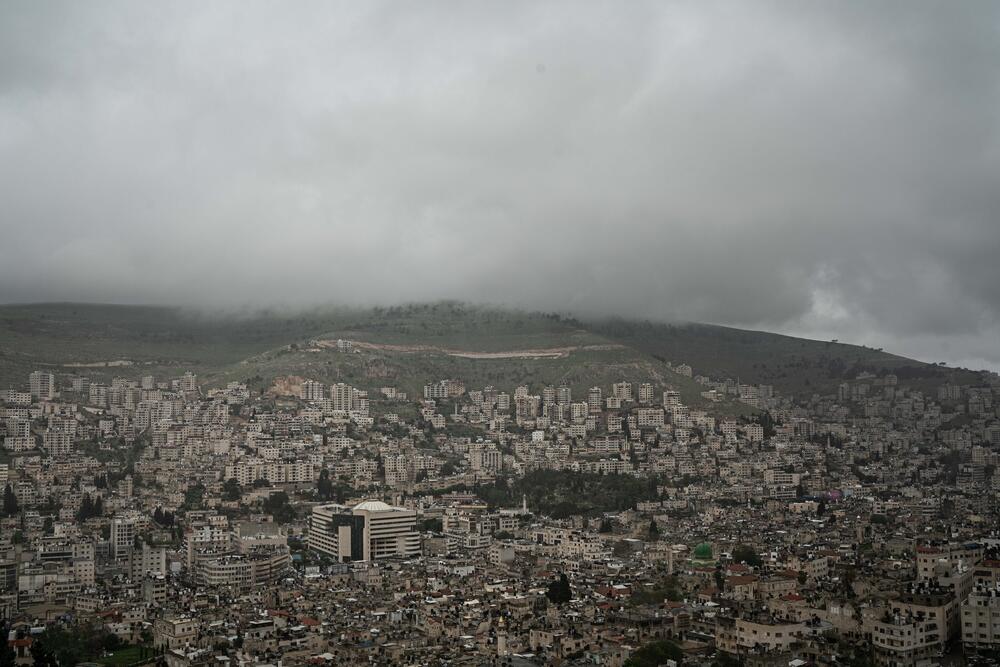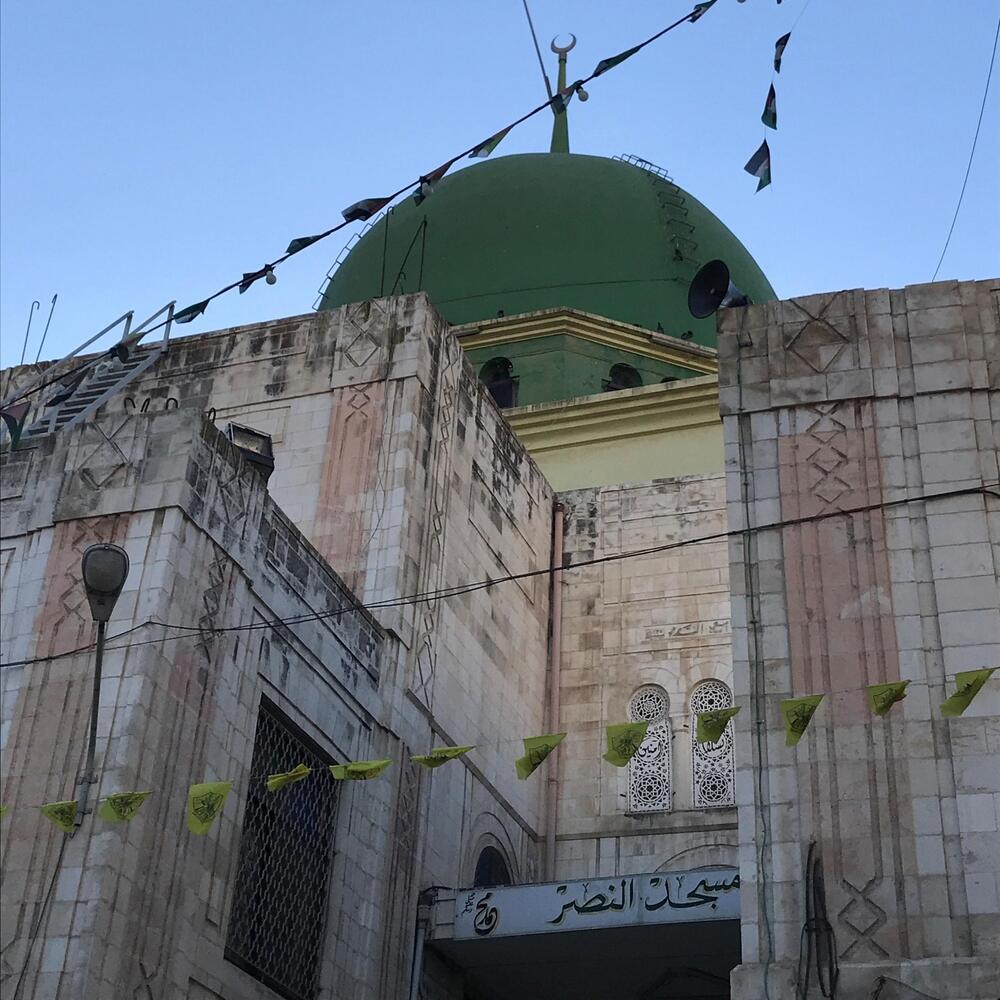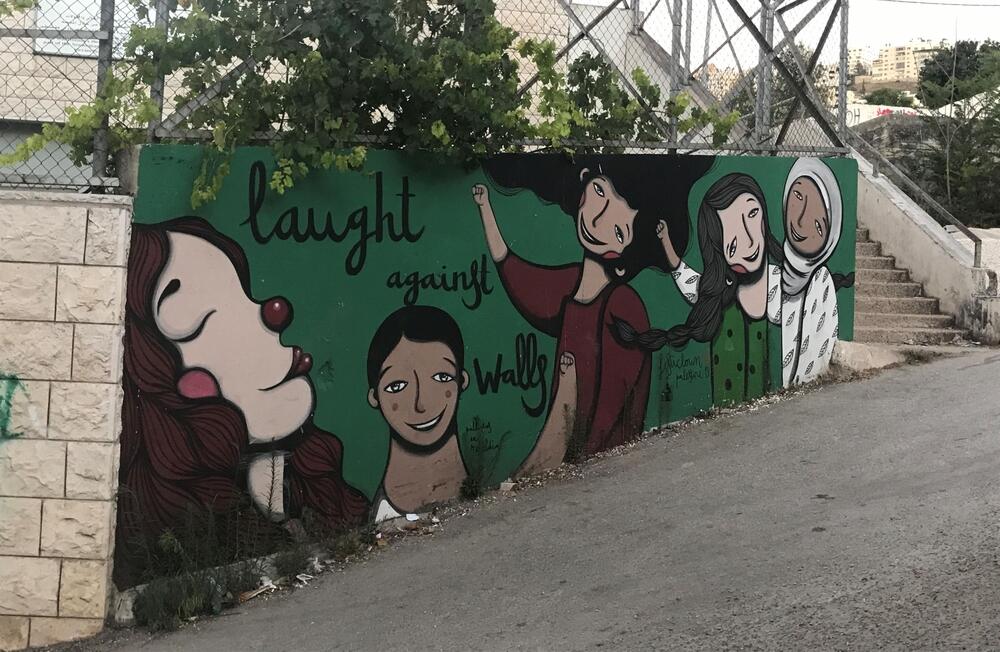The Two Conflicts: Lessons of Loss in Palestine
19 January 2021
Psychologist Marilen Osinalde shares a deeply personal story from one resilient patient, and the growth that can be found in grief.
Some months back I went to see R., a woman of around 50 years of age, answering to her request for psychological support from our clinic. We provide psychotherapy to those affected directly or indirectly by the ongoing conflict. R. had been recently affected, albeit indirectly, very much to her core. Yet again.
She welcomed us into her house while resting on the sofa. The Quran also rests near her. As I entered I could not stop looking at the door, which she explained, had lain broken and not working since the last time Israeli soldiers forced their way into the house looking for someone.
“Do you know how it feels?”
“Are you happy in this sad place? How can you be happy here?” she asked me directly after just a few minutes. The following questions were not easier:
“Do you have a son? Do you know how it feels to lose a son?”
It took me some time to answer, or even find any words, so I continued listening.
Her resources are buried in hurt and exhaustion, affecting her most vital skills, stopping her from eating, from caring for others. Sometimes she would rather die; anything just not feel this pain anymore.
R. told me she felt weak. In the beginning, she talked for a little bit, but then felt so tired that she needed to stop. She was, though, fully aware of what was happening to her:
“I used to be a happy woman, smiling, making jokes, giving joy to the people around me,” she said.
“I’ve overcome many painful situations, I’ve lost people and I’ve learned how to deal with the occupation; but this … this is the most painful thing that has ever happened to me and I don’t think I will recover".
“They took everything from me, not only my son. No one can help me.”
Breakdown
R. woke up some weeks before I met her, to the news that her son had been shot by Israeli soldiers while he was working on the family’s farm.
Her life broke down. Her body felt such pain that she couldn’t even stand up. Once a powerhouse, a matriarch, R. now remained on the couch. It was an effort to speak loud enough to be heard. She didn’t want to eat and preferred to stay all day inside the house.
Her mind was constantly going through her memories, reminiscing about past dreams of happy moments that would never happen. The only thing that gave her some short relief is praying, but, then again, she often didn’t have the strength to pray.
Sadness was now deep-seated, coating all her life with negative thoughts and hopelessness. She was right when she said that losing a child to what she calls “life’s conditions” is quite different from him being shot by soldiers without any reason other than being in what they decided was the wrong place and the wrong time.
R. knows, as she reminded us, that she has overcome all traumatic events from her past: violent episodes, unexpected loss, daily humiliations. Deep inside she knows she has the inner resources to continue her life, but at that time, the pain wouldn't let her see this.
Her resources were buried in hurt and exhaustion, affecting her most vital skills, stopping her from eating, from caring for others. Sometimes she would rather die; anything just not feel this pain anymore.
"As a psychologist, I see a person experiencing extreme sadness, I don’t see a sick person with a mental disorder"
I have observed how life, for her, has grown to mean loss: losing a land, an identity, a son. Losing freedom, losing the joy and hope for the future. She shouts with the might of someone holding to the last of her rights, the right to speak out: “Lesh? LESH?” (“why?”).
And again, what we offer is the opportunity to be heard.
The ordinary
R. thought no one could help her. She has been through a life-disrupting episode that has impacted all aspects of her being. She explains that during the Intifadas she was prepared, alert, knowing that difficult challenges lay ahead, that something bad could happen. She understood this and was ready to protect herself and her family.
But, the never-ending, poorly hidden conflict that exists nowadays, even though it may seem for some that it finished years ago, is very much present in her daily life.
Uncertainty, dread and never feeling safe have become the ordinary.
Lessons on loss
As a psychologist, I see a person experiencing extreme sadness, I don't see a sick person with a mental disorder.
I see a woman with a deep love for her son; a mother crying because the intensity of her sadness is exactly the same as the love she has for him. A woman who dedicated all her energy, her life, to protect him from danger; him, her youngest son, the last of the family to remain unscathed by the conflict, out of prison, out of exile, healthy, whole.
“He never had any problems, he was only working. All the community liked him. He was about to marry,” she tells me.
Intense feelings rise up when one loses something, especially something this meaningful. Sometimes these feelings are labelled as "negative" emotions. However, it can bring great relief to people when they comprehend that experiencing anger, sadness, hopelessness, and questioning life’s meaning can be some of the most common human reactions that we share.
Being forced to walk down this rocky path, it is a struggle not to hate life, hate everything. That is why it is so important to know not to feel guilty – to be reminded that it is only for a period, and that, in the end, it will help provide relief.
A story of suffering
Asking for mental health assistance at this moment is crucial, it is not an easy path to walk alone. Finding meaning, metabolising the experience; this requires time.
Understanding the grief process and the reasons for all the things she lost is complicated, and in some way, it is normal to feel for a while that one part of her has gone and will never come back. Life is not the same.
"There is no mental health without human rights. There are no human rights without freedom"
It requires great psychological strength to, again and again, overcome such highly disruptive episodes. R. has lived through this type of situation thousands of times and, what’s worse, she knows this may not be the last one. As the external conflict continues, repairing and metabolising the internal conflict is much more difficult.
It is not what has happened to R. that makes her suffer so deeply; it is how and why it happened. The war, the occupation, and its consequences on the population are traumatic and complex to integrate.
Every day R. tries to integrate her life’s story and personal experience with the story and struggles of Palestine.
Inner strength
The importance of psychotherapy is to find subjective significance. To transform the way people see themselves, to give new significance to life, to develop and strengthen inner resources to keep living.
The psychotherapy sessions are a space where R. can give voice to all of this, a space for others and for herself to acknowledge what is happening to her.
It is a moment that allows her to speak up without filters, without judgment, and then feel understood and supported. To have a witness to her pain and the burning feeling of injustice. We embrace her with our words, offering a moment to make sense of her pain and transform it into something alive.
It doesn't mean it will disappear, but it will be shared, and she will again learn to deal with it.
"This can help people like her to feel free, finding the courage to transcend the conflict"
During this process, R. saw these events as a challenge. After expressing her anger and the feeling of injustice, she has started to see them as a possibility for further growth, to reach a degree of personal inner strength that no one can take away from her.
She is undergoing a process that people usually reject. It's not easy for anyone to welcome uncomfortable, let alone identity-challenging moments in life.
Two conflicts
There is a dialectic between the conflict within the mind and the one in reality.
We don’t change the external conflict. Working in mental health, we guide people through the process of providing meaning to inner conflicts. We attempt to help create an understanding of what has happened before, and what happens now, internally and externally.
So, while this situation continues, R. again learns how to psychologically protect herself.
This can help people like her to feel free, finding the courage to transcend the conflict. She wishes for people to know what happened to her, because, above all else, she doesn’t want other mothers to feel the same pain.
The question
I continue thinking about her question and I find again that she is right. I can only answer that I am not happy here. I am just grateful for the possibility of being near enough to provide assistance to people like her. She deserves relief.
There is no mental health without human rights. There are no human rights without freedom. There is no freedom living in a never-ending occupation.
I will continue listening.



